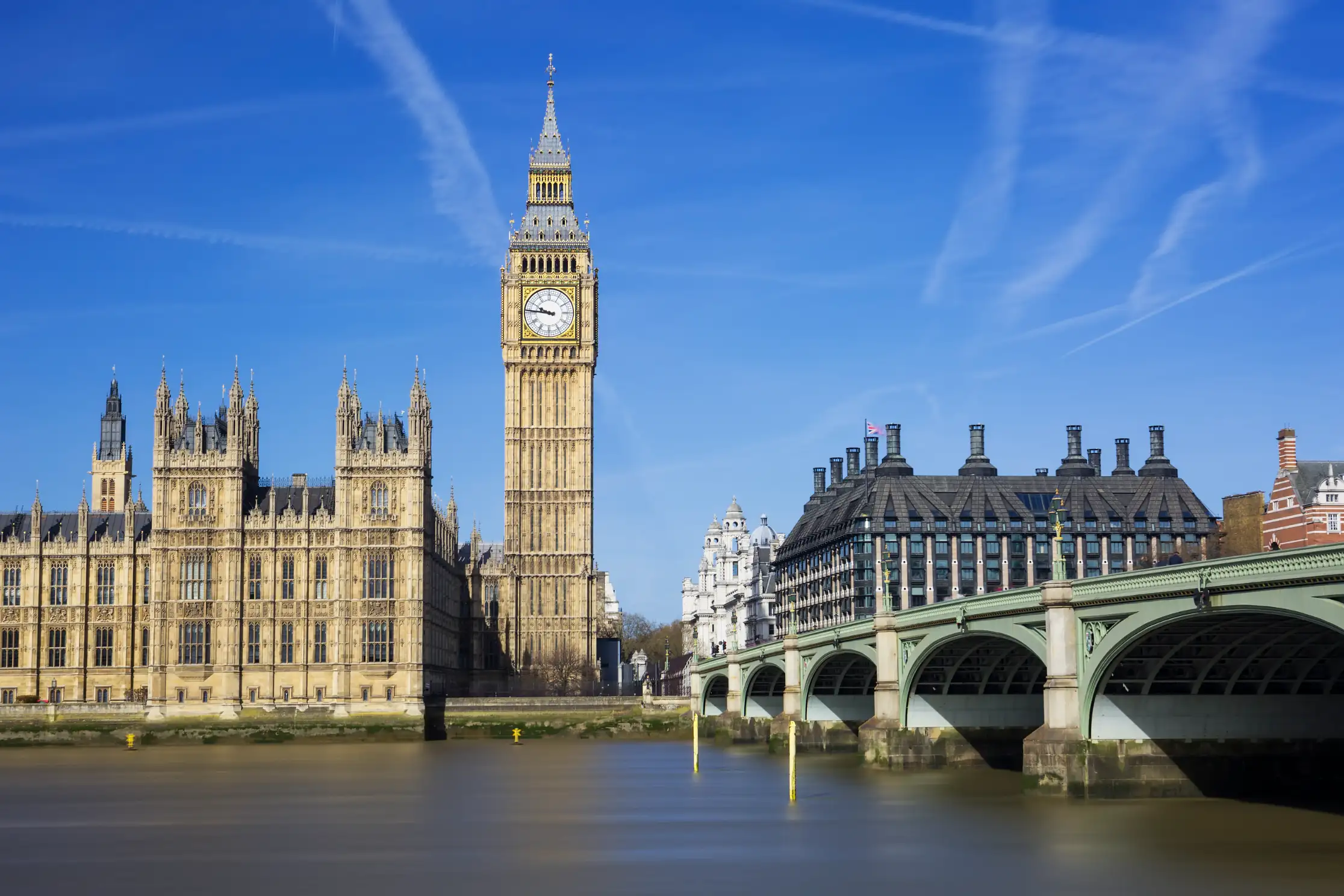Bordier Eservices Terms of Use
The Client has elected to access the Account with the Bank by means of the Bank’s Internet solution of secure electronic connection via the Bank’s Website and the Bordier App which allows the Authorised User to view the Account online on mobile applications, together hereinafter referred to as the “E-Services”.
1. Type of E-Services
1.1 The E-Services currently provided by the Bank to a Client comprise the following: (i) Secure access to any Account of the Client via a separate log-in section of the Bank’s Website (“the Web Access Service”); (ii) Secure access to any Account of the Client via an application installed on a mobile device (“the Mobile Access Service”).
1.2 With an E-Services, the Client can, amongst other things, see the current state of those of his Accounts which he has specified that he wishes to access through the E-Services, and obtain information as to his current Investments. He may also use at his own risk certain analytical tools provided by the Bank. While the Bank endeavours to ensure that comparable functionalities are offered through the Web Access Service and through the Mobile Access Service, the Client acknowledges that, due to technical constraints, there may be differences over what he is able to do through the Web Access Service and what he is able to do through the Mobile Access Service.
1.3 To use any E-Services, the Client must first register with the Bank by such means as the Bank might specify (which will include identifying the specific Accounts accessible through the E-Services) and abide by this Part Eight to these General Conditions as well as with any other terms specified by the Bank in respect of a particular E-Services. The Client will be deemed to have agreed (without reservation) to these terms herein as well as any other terms specified by the Bank to be applicable to an E-Services, from the time he clicks or taps on any confirmation button or from the time he first uses the E-Services (whichever is earlier).
1.4 Without limiting the generality of the foregoing, use of the Mobile Access Service is subject to the mobile device being compliant with specifications determined by the Bank and the Mobile Application End User Licence Agreement (“Mobile App EULA”). The Mobile App EULA will be accessible from within the application after the application is downloaded. Before the Client first uses the application, he must signify his acceptance to the Mobile App EULA. The Bank has the right to update or amend the Mobile App EULA at any time but will give notice of this to the Client. In such a case, the Client must signify his acceptance of such changes before he can proceed further with the Mobile Access Service. Failing this, the Bank will not be able to maintain the service offered.
2. Access to E-Services
2.1 Access to an E-Services is by way of: (a) a user identification code (“user ID”) to be assigned by the Bank; (b) a personal identification number (“PIN”), initially to be assigned by the Bank but to be mandatorily changed by the Client at the first available opportunity to one of the Client’s own choosing, provided that specifications set by the Bank are met); and (c) a authentication device (“OTP device”) that will generate a one-time password (“OTP”) to be used in conjunction with the user ID and PIN each time access is required. Once changed, the PIN Code will not be known to the Bank.
2.2 There shall be only one user ID and PIN in respect of each Client. However, for each Client, the Bank will issue to the Client up to two OTP devices.
2.3 It shall be the sole responsibility of the Client to ensure the safekeeping of the user ID, the PIN and all OTP devices issued by the Bank (even if such OTP device may not be physically in the Client’s possession). The Client must notify the Bank as soon as possible if he believes or suspects that his user ID, PIN or any OTP device might be stolen, lost or compromised. Unless notified, the Bank is entitled to assume that any person who uses an E-Services by using the combination of the user ID, the PIN and an OTP generated from an OTP device, is either the Client himself or a person duly authorised by the Client. For the avoidance of doubt, the Client undertakes to the Bank that he will, where necessary, ratify (or adopt as his own) all action taken by a person who accesses an E-Services in accordance with the process specified herein.
2.4 The Bank has the discretion to impose on the Client a fee to cover the costs of issuing to the Client additional OTP devices beyond the second.
3. Disclaimer in respect of Information available from the E-Services.
3.1 With the E-Services, the Client is able to gain access to information concerning those of his Accounts which he has chosen to be able to access through an E-Services and of transactions undertaken on such Accounts. The Bank may also make available to the Client various analytical tools, which may be used at the Client’s own risk. All information provided to the Client through the E-Services (including through analytical tools) remain information that is of a non-personal nature. The Client acknowledges that all such information does not take into account the specific investment objectives, financial situation, or particular needs of the Client.
3.2 All information provided to the Client through the E-Services (including through analytical tools) are either provided by the Bank and its Affiliates or obtained from third party sources selected by the Bank and its Affiliates. While all reasonable care is taken to ensure that all information provided are fair, accurate and complete, the Bank and its Affiliates makes no representation or warranty as to the accuracy or completeness of such information or the outcomes generated by the analytical tools. In particular, where stock prices or exchange rates are provided through an E-Services, these are merely indicative and are not binding on the Bank. For technical reasons, there may be a time lag between the time that information such as stock prices and other data are displayed or made known on a relevant market and the time that such information is provided to the Client through the E-Services. The Bank is not liable for any loss or damage suffered by the Client due to or in connection with any such time lag or in connection with the use of the analytical tools.
3.3 To the extent that any information provided through the E-Services includes expressions of opinion by the Bank, such opinions only reflect the Bank’s judgement as at the date on which the opinion was expressed, and may be subject to change without notice, particularly as market conditions evolve. Such opinions are not to be construed as a recommendation by the Bank for the Client to enter into any Investment or to dispose or liquidate any Investment. To the extent that any information provided through the E-Services includes expressions of opinion by third parties, the Client acknowledges that the Bank is not responsible or liable for such expressions of opinion and the Bank is not to be regarded as endorsing them.
3.4 Consistent with Part I, Section II, Clause 6 of the General Conditions, the Bank is not, by virtue of providing any of the E-Services, to be considered as providing investment advice as a service to the Client, nor acting as an adviser or fiduciary. The Client must not rely on any of the information provided through the E-Services as authoritative or as a substitute for using their own skills and judgment in making any decision. Such information may not have taken into account the specific investment objectives, financial situation and particular needs of the Client. Before making a decision in respect of any Investment, the Client agrees that he would familiarise himself with the nature of the transaction and read all relevant legal or disclosure documentation (including the prospectus or information memorandum). The Client acknowledges that the Bank has no obligation to give advice to the Client and that he is responsible for consulting his own advisers if he requires advice. Accordingly, the Client agrees that the Bank has no liability whatsoever for the consequences of any decision he makes arising from the use of any E-Services.
4. Access by the Bank’s employees
4.1 The Client acknowledges and agrees that the Bank may, by various means (including the use of software modules (commonly known as cookies) and other similar technology tools) access and collect information relating to the Client’s usage of the E-services (which, in the case of the Mobile Access, may extend to information relating to the Client’s general usage of his mobile device), and the Client agrees and authorises the Bank to have such access.
4.2 To the extent that any such access as aforesaid involves the collection of personal data governed by the Personal Data Protection Act, the manner in which such personal data is handled will be governed by the Bank’s Privacy Policy available on our website.
B. E-MAILBOX PROVIDED BY THE BANK
1. Description
1.1 Through the E-Services, the Client will have at his disposal a secure electronic mailbox into which he may use to receive routine and non-urgent communications from the Bank as well as to send routine and non-urgent communications to the Bank.
1.2 All documents transmitted electronically to this secure electronic mailbox (including but not limited to notices, current account statements, and valuations) shall be deemed to be original documents having the same legal effect as if sent by normal mail. They shall be deemed to have been delivered to the Client once they are received into the electronic mailbox, as determined by the Bank’s records, which the Client accepts to be final and conclusive in the absence of manifest error. Documents will generally be stored in the electronic mailbox for a period of two years from the date of receipt (or such other retention period as the Bank may decide upon). At the end of this retention period, documents that remain unread by the Client may be deleted by the Bank from the mailbox without the Bank coming under any responsibility to the Client.
1.3 However, unless and until the Client logs into the E-Services, the Client will receive no notification of any incoming communications arriving into this mailbox. The Bank is also under no duty whatsoever to remind or prompt the Client to periodically check this mailbox. Accordingly, the Client acknowledges that the electronic mailbox is not a suitable medium for him to receive urgent or time-sensitive communications from the Bank.
C. GENERAL PROVISIONS
1. Technical Support
To assist the Client with technical issues concerning the E-Services, the Bank will make available to the Client a technical support service between the hours of 9 am and 6 pm on weekdays (other than bank holidays and public holidays).
2. Risks associated with Access through the Internet Use
2.1 The E-services are provided by the Bank over the Internet, whether through the internet browser of a computer or mobile device, or through an application that is downloaded and installed onto a mobile device used by the Client.
2.2 The Internet is a public network over which the Bank has no control. The Client acknowledges that the use of the Internet carries various risks for which he agrees to bear full responsibility. These risks may include electronic theft of the Client’s username and password and also of hacking into any of the Client’s Account, which may lead to unauthorised access to funds and other assets, theft of other information and other losses. The Client also runs the risk of his computer or mobile device being infected by viruses, spyware and other forms of malicious software, and of third parties surreptitiously gaining unauthorised access to his computer or mobile device (and any information kept therein) through the use of software modules (commonly known as cookies) and other similar technology tools. The Client also acknowledges that messages which he sends to the Bank by means such as email or text messages are not necessarily safe from hacking or interception, even if these are sent by secure or encrypted means. While the Bank will take all reasonable security measures to guard against such risks, including use of encryption protocols to secure information in its possession and to secure messages sent to it, there can be no certainty that unauthorised hacking or interception can be prevented.
2.3 The Client also agrees to bear the risk of technical failures arising generally from the use of computers, mobile devices, software applications and other technology tools. Such failures can lead to loss or damage in various forms, both direct and consequential, in respect of which the Bank assumes no liability whatsoever.
2.4 The Client has the responsibility to take reasonable steps to prevent unauthorised access to his computer or mobile device. Usernames and PINs should not be divulged to unauthorised persons. These, together with the OTP devices issued by the Bank, must be kept safe and secure at all times and all reasonable measures must be taken to prevent unauthorised access. The Client must regularly change his PIN and must not choose PINs that are easily deduced by others. OTPs generated by an OTP device must not be divulged to anyone. These obligations herein are assumed by and are the responsibility of the Client despite the fact that the Client might choose to allow some other authorised individual to access the E-Services on his behalf. If the Client suspects that his username, password or security token might have been stolen, lost or in some way compromised, the Client has a duty to inform the Bank immediately.
2.5 To the fullest extent permitted by law, the Bank will not be liable or responsible for any loss or damage that may be suffered by the Client arising from his use of the E-Services, including any loss or damage from system malfunctions, network failures, transmission errors and delays, or the malicious acts of third parties.
3. Copyright
Unless otherwise mentioned, all information provided through any E-Services is protected by copyright and such copyright may be vested in the Bank, another member of the Bordier Group or other third parties. The Client is granted a limited, non-transferable and non-sublicensable licence to use the Services only for the purposes of accessing information relating to those of his Accounts which he has chosen to be able to access through the E-Services and of transactions undertaken on such Accounts. The Client does not acquire any intellectual property rights by merely using the Web Access Service or by merely downloading and storing software in connection with the Mobile Access Service. The E-Services are for private and personal use only and the provision of the E-Services shall not be construed as a grant to the Client of any wider license or right to use information or content (including text, charts, images, registered trademarks, service marks, and logos) for any other purposes (including any commercial or business purposes). The Client undertakes not to reproduce or distribute any information which he obtains through the E-Services to third parties.
4. Local Restrictions
Depending on the local regulations and the regulations in force at the domicile of the Client, the Bank reserves the right not to provide certain types of information or tools and may vary the availability of the E-Services or the terms under which an E-Services is provided, without prior notice, in particular if the Bank suspects the existence of malicious or fraudulent attempts (hackers), threatening the confidentiality of information transmitted by the Electronic Services, or for any other reason.
5. Termination of E-Services
5.1 The Client may at any time choose to terminate access to the E-Services by giving written notice to the Bank. Likewise, the Bank may at any time choose to terminate provision of the E-Services to the Client by giving written notice to the Client and to do so without having to give any reasons.
5.2 Termination by the Client of the Web Access Service necessarily involves termination of the Mobile Access Service, but the Client may choose to terminate only the Mobile Access Service while retaining the Web Access Service. However, upon termination of the Mobile Access Service, for security reasons, the Client must uninstall or delete the application from all mobile devices used for the Mobile Access Service.
5.3 Termination of any E-Services does not necessarily have the effect of terminating any broader contractual relationship between the Bank and the Client, unless the parties otherwise agree. Upon such termination of access or provision of the E-Services, the Bank is entitled to require the Client to return to the Bank all OTP devices, and such other installation kits as the Bank may have previously provided to the Client.
6. Applicable Law and Place of Jurisdiction
All relations between the parties under this Agreement shall be exclusively governed by and construed in accordance with the laws of Switzerland. The parties irrevocably agree that the courts of Switzerland are to have jurisdiction to settle any dispute which may arise out of or in connection with this Agreement and that accordingly any proceedings arising out of or in connection with this Agreement may be brought in such courts. Nothing contained in this clause shall limit the right of the Bank to take proceedings against the Client in any other court of competent jurisdiction nor shall the taking of any such proceedings in any one or more jurisdictions preclude the taking of proceedings in any other jurisdiction whether concurrently or not, unless precluded by applicable law. The Client irrevocably waives any objection which he may have now or in the future to the courts of Switzerland being nominated for the purpose of this Agreement on the grounds of venue or otherwise and agrees not to claim that any such court is not a convenient or appropriate forum.



